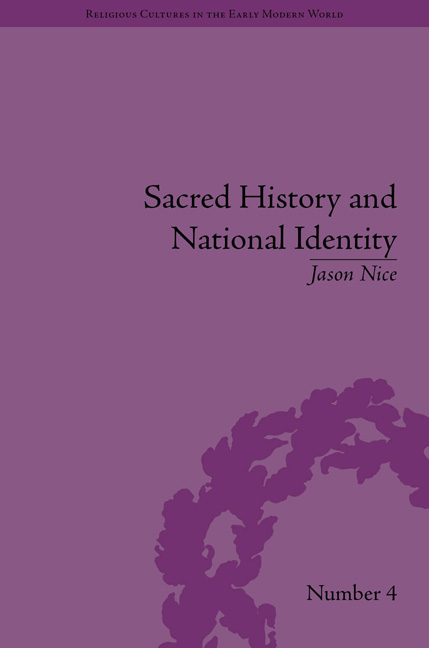3 - The Universal and the Particular
Summary
Those who lost wars hoped … to avenge in the archive their defeats on the battlefield. It became a matter of urgency to show that one came from an old state, which possessed a venerable religion, as well as a long standing political, social, and scholarly tradition …
Anthony Grafton, The Footnote: A Curious History (1997)The national saints considered in the previous chapters were not the only saints bearing the weight of early modern collective identity. Indeed, these centuries witnessed an unprecedented explosion of cults dedicated to local saints throughout Europe. Often, as in the case of seventeenth-century Bavaria, these saints’ cults provided a means for the expression of regional identity, which sometimes bordered upon national identity. Nonetheless, these local cults existed alongside cults with broader geographical appeal, and their relationship to the latter has been variously described as subversive, supportive, or symbiotic. In Wales and Brittany, ecclesiastical history and antiquarianism illustrate the balance between regional independence and interdependence with the fashionable ‘national’ saints popular in the metropole.
Alain Tallon refuses to allow the existence of local saints’ cults such as ‘Denis at Paris, Martial at Limoges, or Lazare at Marseilles’ to detract from his general argument concerning French national identity during the period. He does not ignore their existence, but rather assumes that national saints occupied an equal or greater place to local or regional saints in the hearts and minds of provincial Frenchmen. Tallon compares the reconciliation of local and national saints in the minds of early modern Frenchmen to the situation in France today whereby football fans of local clubs also support the national team whenever it takes to the field, using the example of Brittany to support his claim. For, while admitting ‘the particularistic Breton conscience, without a doubt one of the strongest in the kingdom’, Tallon argues that Bretons did not oppose the inclusion of their local saints in what he describes as the ‘the melting pot that constituted the kingdom.’ This notion of a national melting pot of saints aptly describes the image of France conjured by Claude Robert's Gallia Christiana.
- Type
- Chapter
- Information
- Sacred History and National IdentityComparisons Between Early Modern Wales and Brittany, pp. 61 - 76Publisher: Pickering & ChattoFirst published in: 2014



